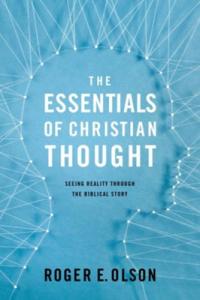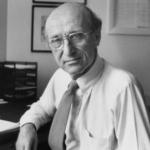Essentials of Christian Thought, Chapter Two
Here I will briefly comment on Chapter 2 of my book Essentials of Christian Thought (also the second interlude) and invite comments and questions from those who read it. The title is Ultimate Reality Is Supernatural and Personal (But Not Human). Here I begin to lay out the underlying, always assumed biblical “blik” or world perspective about the nature of reality, especially the ultimate reality that lies behind appearances.
The purpose of the book and every chapter is to inform Christians, especially, about the biblical-Christian view of reality. As I have said here before, during my almost forty years teaching Christian theology in three Christian universities, I heard a great deal about “integration of faith and learning,” the main purpose of any Christian university, and I heard many false interpretations of reality, false from a biblical-Christian perspective, from faculty colleagues and students. I experienced real resistance to the project of integrating Christian faith, in the sense of a definite world-reality, metaphysical perspective, and various disciplines taught. I often felt that the resistance was at least partly due to presenters’ inaccurate or at least faulty descriptions of the “faith” part of integration of faith and learning.
I wrote this book to express what I think that faith part of integration of Christian faith and the arts and sciences means.
Many of my colleagues in all three universities considered themselves Christian’s but had never really studied Christianity—as a worldview or metaphysical view of reality. Many of them came straight to the universities from secular (often state) universities and their Christianity was, I believed, almost exclusively limited to a vague spirituality centered around Jesus and infected by alien (to the Bible and to Christianity) philosophies and worldviews.
In Chapter Two I express, in almost Sunday School language, that the ultimate reality of the Bible and of classical Christianity is “supernatural” (not a depth dimension of nature) and “personal” (not an impersonal or suprapersonal) force or principle or idea. And that this supernatural and personal God has and does intervened in nature and human history in ways science cannot explain.
In the second interlude I write about science and ultimate reality and argue that there really can be no conflict between science and biblical Christianity so long as both stick to their proper limits and don’t improperly encroach on each other’s territory. Science cannot investigate or make claims about ultimate reality and Biblical Christianity cannot oppose science that sticks to its proper “portfolio,” realm of study and research which is how nature works.
I admit, of course, that science has disproven some traditional interpretations of the Bible and I argue that Christian belief and interpretation of scripture must be adjusted whenever a discovery of science that contradicts them. Evangelical theologian Bernard Ramm argued this in his ground-breaking and classical book The Christian View of Science and Scripture. When a material fact of science does conflict with what is widely held or taught among Christians, we Christians must go back to the Bible and re-interpret it. But nothing science discovers or could ever discover could falsify the basic biblical-Christian view of reality as I describe that in this book.
My hope was that this book would make it into the hands of administrators and faculty members of Christian colleges and universities and help clarify the “faith” part of integration of faith and learning.
In some Christian colleges and universities the “faith” part has included belief in a literal Adam and Eve as the progenitors of all Homo sapiens. (My spell checker won’t allow me to spell “homo sapiens” without capitalizing “homo” unless I put it in quotation marks!)
In some Christian colleges and universities the “faith” part has been reduced to prayer at the beginning of classes or a vague kind of Jesus-centered spirituality. In my opinion it is less detailed and more robust than these interpretations of “faith” in integration of faith and learning.
Comments and questions from readers are welcome; questions from non-readers are welcome (although I may not be able to answer them all). If you are not reading the book and have not read this chapter and interlude, please do not comment, critically or otherwise, here. If you are not reading the book you may, of course, ask a question, but, again, I may or may not have time or inclination to respond. I urge you to read the book.
*Note: If you comment (even with a question), keep it relatively brief (no more than 100 words), on topic, addressed to me, civil and respectful (not hostile or argumentative), and devoid of pictures or links.*













